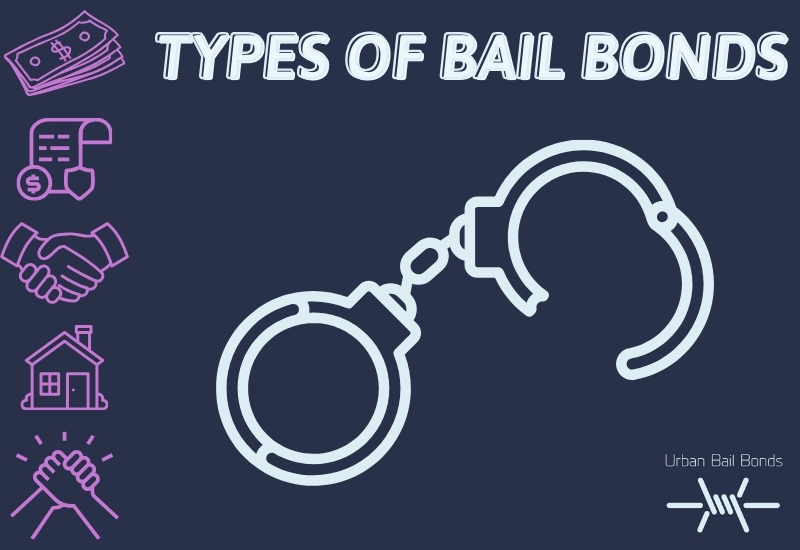Types of Bail Bonds in Colorado
Bail plays a key role in Colorado’s legal system by balancing public safety concerns with an individual’s right to temporary release while awaiting trial. Through various types of bail, defendants can be released from custody with the assurance that they will attend court proceedings. Here’s an overview of these options, which can help families and defendants make the best choice based on individual circumstances.
Types of Bail in Colorado
Cash Bail: This straightforward option requires paying the full bail amount in cash. If the defendant complies with all court dates, this amount is refunded. However, failing to appear results in a forfeiture of the bail money.
Citation Release (Cite Out): Issued by law enforcement for minor infractions, this release allows the defendant to go free based on a promise to appear in court, without paying bail upfront.
Personal Recognizance (PR) Bond: A PR bond enables low-risk defendants to secure release by pledging to attend court, without posting money. While no upfront payment is needed, failure to appear can lead to new charges or higher bail requirements.
Property Bond: Defendants may use real estate as collateral for release, with the court placing a lien on the property. If the defendant fails to appear, the property can be seized. Typically, the property’s value must be double the bail amount.
Surety Bond (Bail Bond): Secured through a bail bondsman, a surety bond involves a non-refundable fee (usually 10-15% of the bail amount). The bondsman assumes responsibility for the defendant’s court appearances and may collect collateral to secure the bond.
Below is a quick table of the pros and cons associated with each bail type.
| Bail Type | Pros | Cons |
|---|---|---|
| Cash Bail | Full refund if court appearances are met; straightforward process | High upfront cost, with funds tied up until court resolution |
| Citation Release | No financial burden; immediate release for minor offenses | Limited to minor cases; unsuitable for serious charges |
| Personal Recognizance | Avoids financial cost; based on trust and community ties | Additional charges if missed court date; availability limited by judicial discretion |
| Property Bond | Useful for high bail amounts; does not require cash upfront | Risk of losing property if court dates are missed; often lengthy approval process |
| Surety Bond | Allows quick release with a smaller cash outlay | Non-refundable fee; collateral may be seized if the defendant fails to appear |
This comparison of pros and cons can help defendants select the best option based on financial and personal circumstances.
Contact Our Broomfield Bail Agents
If you need help posting bail for yourself or a loved one, call our compassionate bail bonding team for assistance.(303) 736-2275
Factors Affecting Bail Decisions
Bail decisions in Colorado are shaped by a few key factors.
- Ability to Pay: Courts consider a defendant’s financial resources and may set lower bail or offer non-monetary release options for those with limited means.
- Criminal Record: A history of offenses or missed court appearances often results in higher bail or more restrictive options.
- Flight Risk: Community ties, job stability, and family presence influence how likely someone is to attend court, impacting bail type and amount.
- Severity of the Offense: Serious crimes lead to higher bail amounts or bail denial, while minor offenses may qualify for citation or PR bonds.
- Public Safety: If a defendant poses a safety risk, bail can be set high or denied, particularly in cases of violence or ongoing threats.

FAQs About Bail Types
Cash bail and surety bonds are commonly issued in Colorado, with cash bail offering a refundable option if court conditions are met, while surety bonds provide an affordable release through a bail bondsman.
Property can secure high bail amounts, typically requiring the property to be worth twice the bail amount. This option may take time to approve and usually suits those with substantial property ownership.
Bail bonds secured through a bondsman involve a non-refundable fee, usually around 10-15% of the bail amount. This fee compensates the bondsman for posting the bond and assuming responsibility for the defendant’s appearances.
Missing court on a PR bond can lead to new charges, a possible increase in bail, and a revocation of the PR bond privilege, making future releases more costly or difficult.
Bail bondsmen post bail for defendants in exchange for a fee and collateral if necessary. They are responsible for ensuring the defendant attends all required court appearances.
By understanding the different bail types and their requirements, defendants and their families can navigate the Colorado legal system with greater confidence and efficiency. Urban Bail Bonds is committed to assisting with all aspects of bail posting and providing reliable support to ease the release process.

